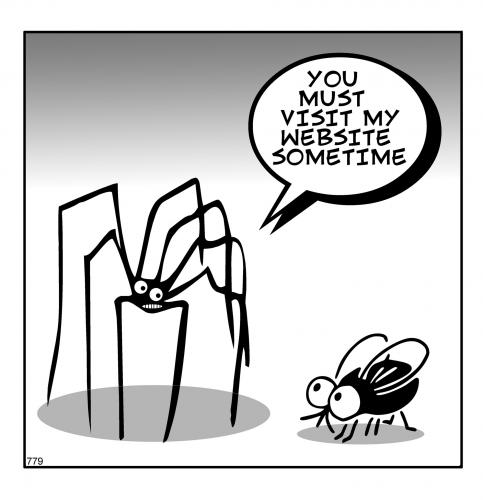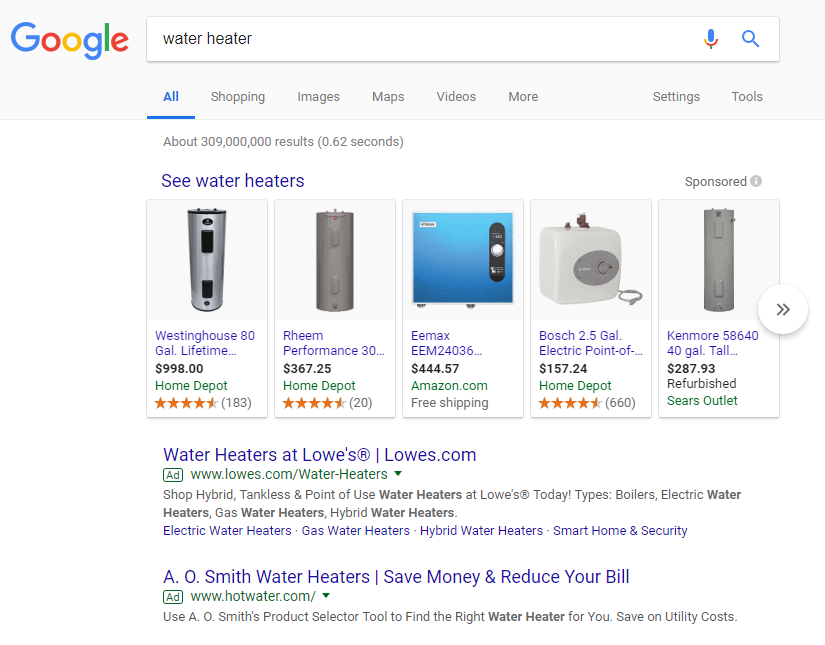2019 was a big year for SEO.
Search engines have become smarter and smarter. 2019 saw numerous Google algorithm changes—from sweeping core updates that benefited expert, authoritative, and trustworthy content, to diversity updates that reduced the same domain appearing multiple times in the search results.
Even more?
In late 2019, Google released BERT, or the search engine’s neural network-based mechanism for understanding the “nuance” and “context” of a user’s query. Now, Google can piece together context clues to generate results almost at the level of human speech. Big deal, right?
Right.
That said, it’s not at all controversial to say we’ll see huge SEO changes in 2020, too.
So what’s new for SEO in 2020? As a webmaster, should I scramble to update my website? Should I be concerned?

Read on. We’ve assembled a guide of the top 10 SEO trends for Google this year, so you won’t need to worry.
1. Featured Snippets
Looking at the SERPs (search engine result pages) as they are currently, you’ll see that they are a more competitive space. Of note, AdWords ads take up a lot of the space with results that show up for commercial queries. Based on what is queried, retail ads with images – or a block with a quartet of text ads – are also positioned before organic search results.

For top rankings, other results that are displayed include:
- Knowledge Graphs
- Local Packs
- “People also ask” Boxes
- Google Images
- Google News
- YouTube Video Packs
Here is an instance of a Featured Snippet. In this example, the picture in the snippet originates from a site different from the one presenting the text.

Featured Snippets will keep playing a vital role. They fulfill the user’s demand for basic answers to a query made.
The excerpts presented are from sites that Google determines relevant to address the user’s query.
That said, it is undetermined how Google handles the reliability of the pages they display. Google produces a knowledge graph for most queries based on data from Wiki pages.
In places where English is the primary language, Google leads the way with regards to answering questions. They display “People also ask” Boxes that users can click.

SearchLab Suggestion:
It will be more difficult to rank high on SERPs this year. For website and web page optimization, you’ll need to be methodical about your objectives and what can be realistically accomplished
For your Featured Snippets to be ranked high, particularly with regards to knowledge queries, think about placing Q&A sections on pages.Note:Structured data tables may show more results than organic results typically can. As competitors vie for top spots, when it comes to Featured Snippets, “smaller” sites can rank well if they present Google with a series of properly structured answers.Think about what your audience is searching for or what they want search engines to answer this year.
You’ll rank higher than the competition if you accommodate Google with your content.
2. The Importance of Structured Data Becomes Critical
As SERPs continue to evolve, Google is using more data than ever.
Nowadays, the search engine can produce its own practical meta descriptions from available content. The best way to assist the search engines is by providing structured data.Because the vacant space is scarce thanks to the modification in the positioning of ads, ensure your snippets are alluring to users.Note:Inner pages can get review snippets, but home pages cannot.
Rich snippets can substantially raise the CTR (click through rate) for your site. It is speculated that this may increase by as much as 30%.To display rich snippets, search engines require structured data.
Other instances of snippets include:
- Calories
- Rating Stars
- Event Data
- Opening Hours
SearchLab Suggestion:
Your content should be marked up to the best of your ability. You have a number of options to choose from, the first of which is on the Schema website, www.schema.org
3. User Experience is Vital
Search engine optimization is an anachronistic term. We optimize websites and web pages for people, not robots. As such, user experiences play a key role.
Your to-do list should contain these OnPage optimization starting points:
Loading Time: You can use online tools such as gtmetrix to assess the loading speed of your web pages. Alternatively, the performance of your site can be measured with Google’s PageSpeed Insights tool for free.
Error-Free Websites: The demands by users are increasing, and your page should be easy to navigate. You can do without Adobe Flash these days, for instance.
Mobile Optimization: In many places, over 50% of all search queries are conducted on mobile devices. Therefore, mobile optimization must not be neglected and is now a requirement.
4. AMP: Page Speed Enhancement
Nowadays, the standard for producing new sites is Mobile Optimization. With Progressive Web Apps and AMP (Accelerated Mobile Pages), the search engine reveals how to speed up your mobile pages.
A key aspect of SERPs on Google are AMPs. It is believed that this year, the “AMP” theme will achieve greater momentum. However, because of its restrictions, it’s not suitable for all websites.
AMPs usually lack structure and pictures; and are comprised of plain old text. That’s why these pages are fast-loading.
AMP is essential for news websites. After all, AMP places news articles into the search engine’s news carousel above everything on smartphones and tablets.
5. Content is Important
While Google’s algorithms are improving, it still requires text content to connect a query to a relevant web page.
The search engine has made substantial enhancements in textual content analysis as of late. To understand content better, it uses the most recent technology with RankBrain.
This quality jump will continue as the platform learns things by itself. As such, your objective should be to keep providing the best content about whatever your specialty is online.
SearchLab Suggestion:
Keep your eyes on wording regularly and ensure they stay unique while providing extra value. When crafting text, make use of word counter analyses. They will reveal the kind of terms your text should include so that it stays relevant with regards to a query. Refrain from keyword-stuffing in your wording, which is what many of your competitors do.
6. Voice Search
During a 2014 study, Google established that voice-activated web queries made up more than 40% of respondent searches.
For teens, there was a 50% rate.
Google claims that every 5th mobile device query is conducted by voice.
Because of the rising use of smart home devices and digital assistants, users this year will likely use features like “Voice Search” more often.
SearchLab Suggestion:
Since users interact with Google directly when making voice-activated queries, it is worthwhile to concentrate on long tail keywords to optimize content.
Helpful tools for this are found on:
7. Google’s Mobile First Index
Within the last 24 months, the search engine has been concentrating on mobile.
This is hardly a shock because the amount of users on mobile devices has increased and surpassed the amount of desktop users with regards to web searches.
For instance, 2016 saw the introduction of mobile optimization as a ranking aspect. A year later, Google began promoting ad displays on mobile pages, and as such, enhanced its mobile update.
Implementation of the Mobile First Index began in 2018.
Google will be more inclined to display the mobile version of a page in mobile SERPs down the road.
Through 2018 and by the end of 2019, your site must be optimized for tablets and smartphones.
8. Links are Still Vital
People claim each year that link building and SEO is a relic of the past, but this is not true. If anything, backlinks will be more important than ever this year.
Google’s Gary Illyes said in a 2018 conference that PageRank is still a key internal ranking signal for the search engine, and that authority, or link power, is accomplished through backlinks.
This year, linkless backlinks might have the strongest role of all. The search engine takes into consideration references to brands or websites on other pages without a direct link.
SearchLab Suggestion:
Unmotivated guest posts and second-rate article portals won’t be effective this year for SEO. Rather, it’s worthwhile to invest in special content that users like to share or consume.
Guest post with caution moving forward. A couple of years ago, Google frowned upon low-quality guest posts, so ensure the quality of yours is strong.
When building links this year, a basic rule to follow is this: Whenever you build a link, consider if the link to your page provides the user with value.
9. Greater Focus on Image Search
In 2017, Google gave its image search an upgrade.
Most websites saw declines in traffic because of the change since users didn’t have to leave the search engine to see images.
The image search on Google was likened to a photo gallery.
Google reacted to a trend by enhancing their image search.
SearchLab Suggestion:
Since more and more users are looking for pictures, you should be optimizing all your images. You’ll fare well if your images are stronger than the ones posted by your competition.
Much like in 2018 and 2019, with regards to content, you should think holistically in 2020.
Your site’s content is a harmonious potpourri of video, image, and text materials. They should be tailored to the user to offer extra value and address a subject thoroughly.
10. RankBrain: Machine Understanding
In 2015, Google debuted a new self-learning algorithm called RankBrain.
Ever since, AI, which is still in development, is responsible for approximately 15% of Google’s daily search queries.
RankBrain has evolved, and Google is more equipped to answer the most complicated of questions.
As such, this year, we can anticipate search engines being more adept in comprehending humans.
This is fortunate for those of us who endeavor to produce quick-loading sites with helpful content for users!
In Closing: This years checklist should entail the following:
- Produce a technically flawless website that is optimized for smartphones and tablets. It should be indexed and crawled by search engines effortlessly.
- Your site should contain markups so that Google can create rich snippets with structured data, allowing you to raise your SERP CTR.
- Focus on mobile device content optimization.
- Attempt to make your site load as quick as possible.
- Endeavor to please the user’s needs when queries are made for a subject or search term.
- When producing content for other sites, think of more than just backlinks.
When you are ready to get serious about optimizing your web pages and rank higher in the search results, contact us.
